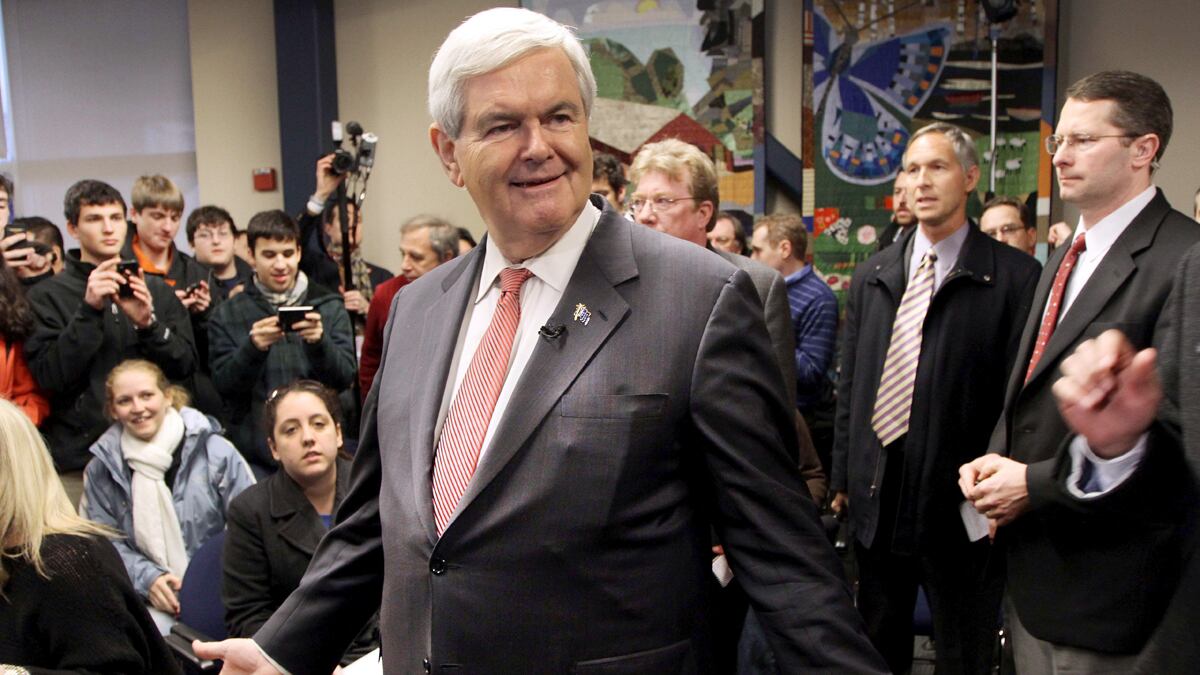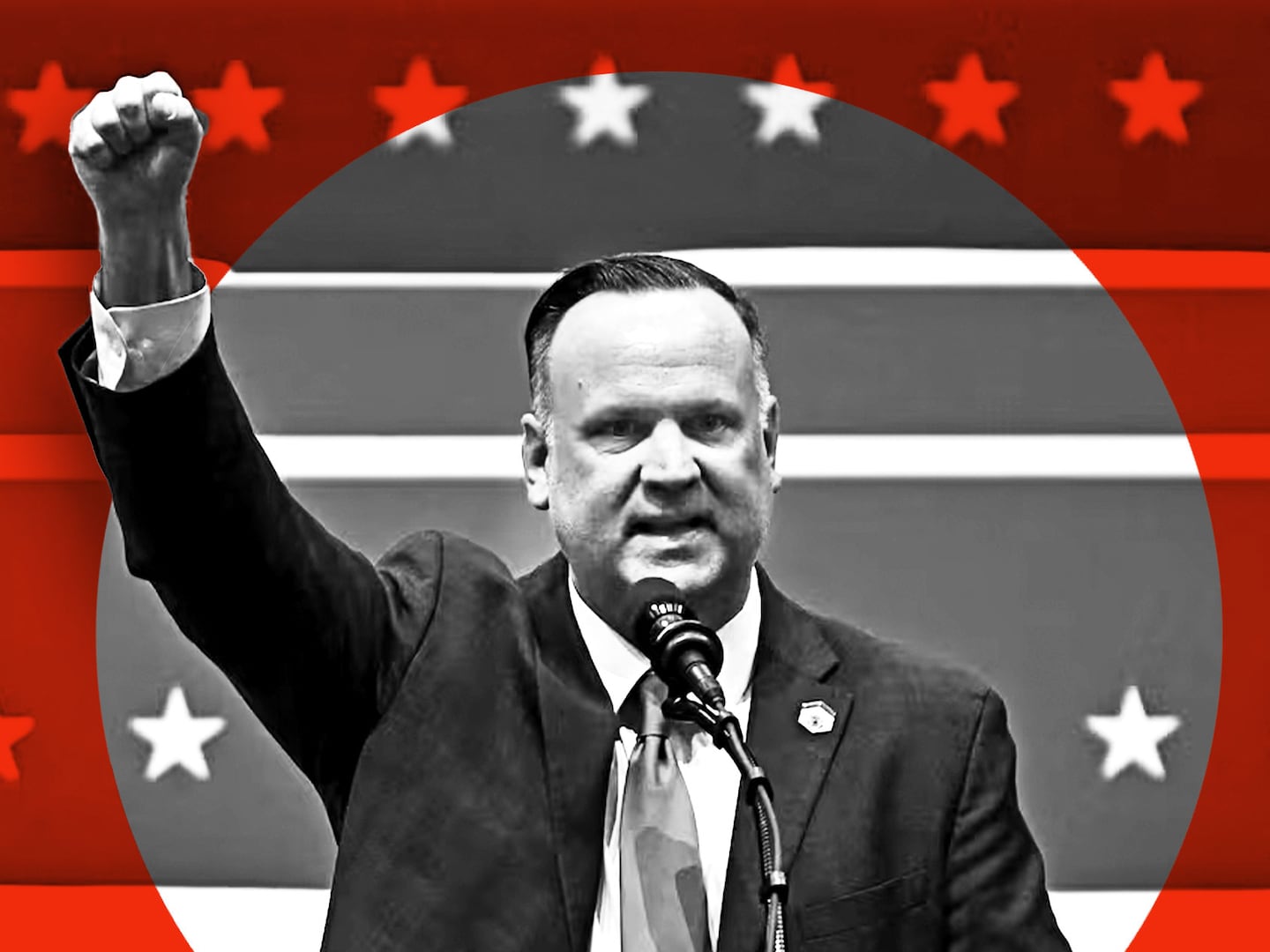For a moment on Tuesday morning—win-or-lose day for the New Hampshire primary rivals—it seemed that Newt Gingrich was cutting Mitt Romney some slack.
“He just misspoke,” the former speaker of the House said as he arrived at a Manchester high school to greet Republican voters doing their civic duty. Discussing the former Massachusetts governor’s unscripted remark Monday that he likes to fire people who don’t provide good service—a gaffe that immediately went viral, never mind that he was talking about health-insurance companies—Gingrich seemed to indicate that he wasn’t interested in piling on. “What he meant to say is he likes to choose which company he gets services from.”

But Gingrich’s experiment at being a Romney campaign spokesman was short-lived.
“The Republican voter has to question: if a guy misspeaks himself that badly and that destructively, do you really want him on the same platform as Barack Obama?... He said it so clumsily, it does put into doubt whether or not he could actually debate Barack Obama.”
Over shouts of “Four more years!” from a spirited group of Obama partisans and then “Go, Mitt, go!” from supporters of his rival, Gingrich happily attacked Romney—his great white whale—for raising taxes in Massachusetts, favoring gun control, allowing taxpayer money to fund Planned Parenthood as part of Romneycare, and for being “a Massachusetts moderate.”
Romney is universally expected to place first in New Hampshire, and Gingrich is not expecting to do particularly well—he told me he’d be satisfied with any result—but he is looking toward South Carolina’s Jan. 21 primary, for which the pro-Gingrich super PAC, Winning Our Future, has bought $3.4 million in television advertising, much of it aimed at trashing the Republican frontrunner.
“If you look at the totality of his career,” Gingrich opined, “it’s a real stretch for South Carolinians to decide that the state of Dukakis and John Kerry is sending them a conservative leader.”
Gingrich delivered his critique in the middle of a roiling media monster—perhaps 100 cameras and boom mikes and bodies, moving in a single scary mass and closing in on him and his wife, Callista, as if to swallow them whole as they vainly attempted to mingle with ordinary people.
“I’m here to talk to voters, not to you,” Gingrich scolded the monster before accepting the inevitable and feeding the beast.
“How well do you expect to do here in Iowa?” one of the beast’s many confused tongues demanded.
“Fine,” Gingrich answered.
“Excuse me!” Callista Gingrich said over and over as a microphone repeatedly made contact with her golden-blonde hair. At one point, she noticed a profusion of white flakes on the shoulders of her husband’s suit and began furiously brushing them off. The media monster paid no attention and shoved her along.
“It’s all right,” she told me with a grin after someone pushed her from behind. “It’s all part of the process.”
The 68-year-old Gingrich, for his part, compared the experience to his memories of Mardi Gras when he was a graduate student at Tulane University in New Orleans.
I asked him to compare running for president to his previous political campaigns.
“Much, much bigger and more intense—amazingly bigger!”






